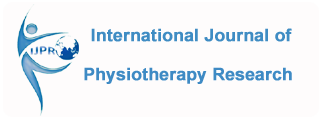IJPR.2020.166
Type of Article: Original Research
Volume 8; Issue 5 (October 2020)
Page No.: 3634-3638
DOI: https://dx.doi.org/10.16965/ijpr.2020.166
REASONS FOR OMISSION OF PHYSIOTHERAPY IN A TERTIARY CARE INSTITUTE IN MUMBAI
Sanjith Saseedharan *1, Paulomi Shah 2, Vaijayanti Kadam 3.
*1 Head-Department of Critical Care, S.L. Raheja Hospital (A Fortis Associate), Mumbai, Maharashtra, India.
2Registrar, Dept of Critical Care, S. L. Raheja hospital (A Fortis Associate), Mumbai, Maharashtra, India.
3Associate Consultant, Dept of Critical Care, S. L. Raheja hospital (A Fortis Associate), Mumbai, Maharashtra, India.
Corresponding Author: Dr. Sanjith Saseedharan, Dept of critical care,S.L.Raheja Hospital(A Fortis associate), Raheja Marg,Police colony, Mahim,Mumbai, Maharashtra, India. Phone number: 02266529999,9930925503,9004479549 E-Mail: docsanjith@rediffmail.com
ABSTRACT
Background: As critical care is progressing, we are able salvage many patients, many of which in the past decades, would not have survived. A good number of these patients spend prolonged time in the intensive care unit(ICU). The after effect of which is myopathy, respiratory muscle weakness, neuropathy etc. Physiotherapy is an especially important armamentarium in the arsenal of critical care medicine which helps in the prevention of morbidity. However, there are reasons why there is omission in the performance of physiotherapy in the intensive care unit.
Purpose of study: To study the commonest reasons of omission of physiotherapy in a tertiary care hospital intensive care unit and thus help in devising methods or intervention for prevention of the same.
Methods: This study was performed by reviewing data from the charts of 240 consecutive patients admitted to a mixed medical surgical intensive care unit in Mumbai. Patients were prescribed physiotherapy by the intensive care physician a day in advance depending on the clinical indications and suitability for the same. The physiotherapist then decided the therapy for the following days and scheduled them accordingly. The reason of the omission of the session was documented by the physiotherapist responsible for the conduct of the session. The common reasons for omission of sessions were noted for analysis.
Results: Physiotherapy was missed in 32 % of cases and this was predominantly seen in the morning hours. The most common reason (36%) was patient refusal, attributed to inadequate sleep in the night hours. The next common reason (22%) was the requirement of shifting the patient to the diagnostic room for investigations, namely imaging, and hence omission of physiotherapy. This was followed by bedside rounds by senior consultants including teaching rounds (18%) followed by the sudden deterioration of condition in 16 % of cases.
Conclusions: There are many obstacles that come in the way of the conduct of physiotherapy in large tertiary care busy intensive care units which is compounded with the lack of manpower. Like any medication assessment for the need for physiotherapy, timing of physiotherapy, the dose of physiotherapy and the actual form of therapy is a very important in improving patient care. Simple interventions can be put in place in order to avoid omission of physiotherapy.
KEY WORDS: Physiotherapy, Intensive care unit, Omission.
REFERENCES
[1]. Needham et al Early physical medicine and rehabilitation for patients with acute respiratory failure: a quality improvement project Arch Phys Med Rehabil 2010;91:536-542.
https://doi.org/10.1016/j.apmr.2010.01.002
PMid:20382284
[2]. Morris PE aet al. Early intensive care unit mobility therapy in the treatment of acute respiratory failure. Crit Care Med . 2008;36:2238-2243.
https://doi.org/10.1097/CCM.0b013e318180b90e
PMid:18596631
[3]. Kayambu G, Boots R, Paratz J. Physical therapy for the critically ill in the ICU: a systematic review and meta-analysis. Crit Care Med. 2013 Jun;41(6):1543-54. doi: 10.1097/CCM.0b013e31827ca637
https://doi.org/10.1097/CCM.0b013e31827ca637
PMid:23528802
[4]. Pozuelo-Carrascosa DP, Torres-Costoso A, Alvarez-Bueno C, Cavero-Redondo I, López Muñoz P, Martínez-Vizcaíno V (2018) Multimodality respiratory physiotherapy reduces mortality but may not prevent ventilator-associated pneumonia or reduce length of stay in the intensive care unit: a systematic review. Journal of Physiotherapy 64: 222-228.
https://doi.org/10.1016/j.jphys.2018.08.005
PMid:30220625
[5]. Herridge MS, Cheung AM, Tansey CM, et al. One-year outcomes in survivors of the acute respiratory distress syndrome. New England Journal of Medicine. 2003;348(8):683-93.
https://doi.org/10.1056/NEJMoa022450
PMid:12594312








